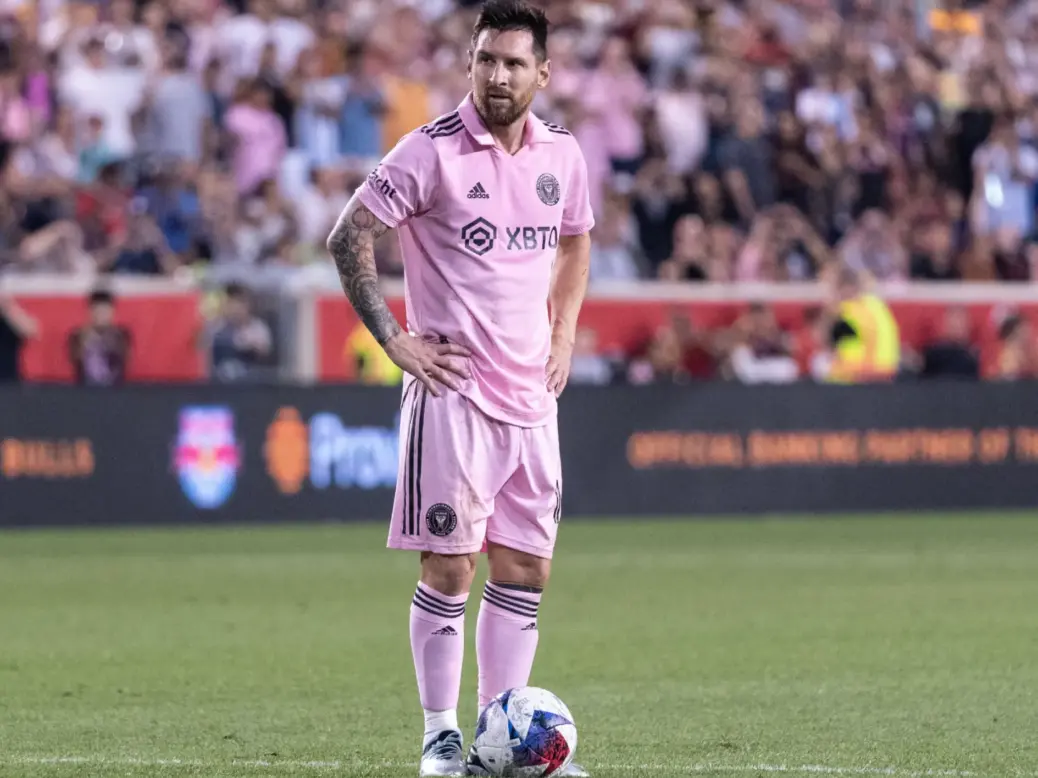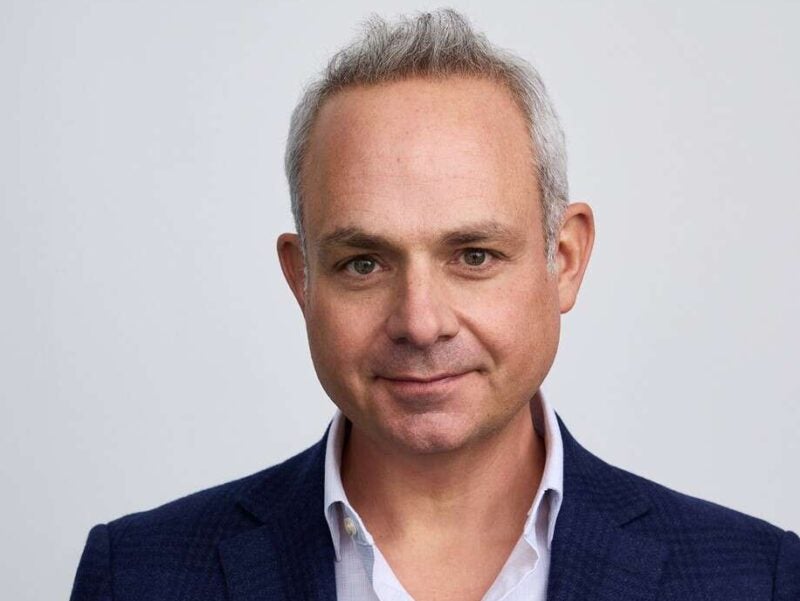
Footballco’s first CEO for North America is enjoying the “luxury” of setting up a “really big, massive important business” in time for the FIFA World Cup being held in the US, Canada and Mexico in 2026.
Jason Wagenheim said the “North Star” of the newly-stepped up business is to be “the most definitive, important soccer media platform in the US come 2026” via its flagship brand Goal and women’s brand Indivisa.
Footballco saw an untapped opportunity to cover the American game including Major League Soccer, USL Championship, National Women’s Soccer League, the US national teams, and American players in the UK and Europe like Nottingham Forest goalkeeper Matt Turner. The Copa America is being held in the US for only the second time this month and Wagenheim described it as a “great dress rehearsal” for the World Cup.
Speaking to Press Gazette’s Future of Media Explained podcast, Wagenheim said Footballco has had a “great four-year run” under its current owners TPG Capital “but there hadn’t been any investment in the US market yet”.
“There was really no soccer-only media platform in the States that was covering the game at the depth that Goal covers soccer globally,” he said. “And that in itself is, I think, where the opportunity really exists.
“There was no revenue last year, there was no team, but we still reached 30 million people in the United States without even turning the lights on, or having any meaningful boots on the ground. We had a very small team doing some work, but nothing really meaningful like we have right now.”
Wagenheim became employee three or four in the US in January and the team is now up to about 25, half of whom are editorial staff. He described it as a start-up with the “security blanket of a much bigger global flagship” company.
“We’ve done a great job of very quickly hiring a brilliant commercial team so they’re out talking about the strategy with advertisers and clients, we’re starting to break some deals, which is really nice,” he said.
“So the first couple months was really just about planting the flag and getting our materials and our story in order. But then we hit the street pretty quickly. While we are looking ahead to 2026 we still have a revenue goal to hit this year for the board, we still have one next year.”
Wagenheim, who is based in New York, joined Footballco in January after seven years as chief revenue officer at US lifestyle publisher Bustle Digital Group (almost four of which he also held the role of president).

What sports publishers can learn from lifestyle brands
Wagenheim, who has also spent ten years at Conde Nast including as publisher and CRO of Teen Vogue and Glamour, said sports publishers can learn a lot from lifestyle brands.
“A lot of the lessons in lifestyle really translate well into sport,” he explained. “I think sports media does news scores and analysis really, really well but they could use some help with the lifestyle beats that the GQs and the Vogues and Glamours of the world have done well for 100 years or whatever it’s been. We can take lessons from that category and infuse the storytelling chops into sports and come out really successful.”
For example, he said, lifestyle publishers are good at having “great packaging and tentpoles and creating urgency for your content, and creating daily habit for it, and making people care about the things that you’re really publishing and then ultimately selling advertisers around those propositions”.
He also pointed to what Taylor Swift has “done for the NFL” since beginning a relationship with Kansas City Chiefs player Travis Kelce last year in terms of viewership and therefore sponsorships and other revenue opportunities.
“We can do the same for soccer in the US by finding those crossover moments and those crossover beats that also go with the great on pitch coverage that we do and make the game more accessible…” Wagenheim said.
Footballco US: ‘We want to go deeper and broader’
This way of thinking is influencing both editorial and commercial deals.
Editorially they want to go “deeper and broader and really tell rich stories about these players and clubs” with original reporting rather than simply report on scores, highlights and the latest news about Inter Miami’s Lionel Messi, for example.
“I think a lot of what The Athletic does is what you’re going to start to see a lot more on Goal,” Wagenheim said.
He said the question is: “What are we actually making that feels and acts very differentiated not just from what we do globally, but most importantly, differentiated from what other sports publishers do in the US and how they cover soccer?
“And that’s where I think most of the opportunity really exists is to just go much deeper into these stories… there’s incredible beats around fashion, music, beauty, style, travel, food, all the great pop culture beats that most of mainstream media or lifestyle media covers, you can tell all those stories but use soccer as a backdrop to it, and have it be really, really interesting the same way you do in other categories.
“So I’ve been using this terrible metaphor of what if Vanity Fair and ESPN FC had a baby, that’s a lot of what we’re looking to build here. Those off pitch stories are as important as the on pitch ones to create interest for the sport here.”
Footballco already has a brand that fits this bill: Mundial, which is based in London and is a quarterly print magazine and podcast producer covering “all the subculture, the nostalgia of soccer, the lifestyle aspects, the fashion, the kits, the gear that go along with it”.
Wagenheim said: “I look forward to launching that here in the US when the time is right later this year” alongside Goal and Indivisa.
Patrick Stiegman, who spent almost 20 years at ESPN has joined Goal as editor-in-chief and executive advisor for North America (it is also still hiring for an editor).
“I think you’ll start to see Goal become a lot more well rounded in its coverage and going much more beyond news scores and analysis to not just cover the American game but also some of these lifestyle stories that we’re talking about,” Wagenheim said.
Two other key lessons Wagenheim learned at BDG were “the important of being platform agnostic” and having a diversified audience, and “the importance of good customer service… if you mess up for an advertiser, you oftentimes don’t get a second chance in digital. So how do you make the best first impression ever?”
‘Ton of advertisers’ now interested in US soccer
Commercially, his team did a deal “as soon as we walked in the door” with Elf Cosmetics which according to Wagenheim has “made a big investment in women’s sports”. The deal saw Indivisa produce a video series for them called Ready to Play about how players get ready for a game, a media day, a date, or anything else going on in their lives.
“I think it’s a great example of what we intend to do on the women’s side.” Wagenheim said. “I mean, here’s a category, beauty, that’s not terribly invested deeply enough into women’s soccer – in the US, anyway. We provided a real opportunity for them to access the sport, access some of the nation’s top players and create some beautiful content that actually feels really authentic and organic to the stories that we’re telling on Indivisa. And it performed exceptionally well.
“It’s one example of how we see this crossover between some of these lifestyle categories and soccer working really well to tell stories that can work hard for brands.”
There are a “ton of advertisers in the US that have decided soccer is important for them on some level to market toward”, Wagenheim added. Footballco in the US has already broken deals with major brands like McDonald’s, Toyota, Michelob Ultra and Unilever including with sponsorship for coverage of Copa America which is running until mid-July.
Wagenheim noted that football (or soccer as he calls it) is the fourth largest sport in the US after American football, basketball and baseball – but that it has “incredible momentum” behind it as well as a “tribalism, the community building, the energy and excitement from fans”.
He added: “How do we capture that and tell brand stories with it and match that up with the brands that are trying to reach those fans instead of through a beauty publication or a fashion publication but through soccer?”
Overall for Footballco, Wagenheim said, the year got “off to an awesome start” with revenue and audience both “much higher” than in the first half of 2023. “We’re very pleased with the first half… 2023 was a very, very strange year in publishing, in the US anyway. So we’re happy to see some of those negative trends reverse and that there’s lots of upside for our company on a global basis.”
Wagenheim noted the publishing industry has been the victim of “a lot of global macro factors” through no fault of its own including the Covid-19 pandemic, the conflicts in Ukraine and the Middle East, and high interest rates, inflation and cost of goods in countries including the US.
“I also think that it’s really, really hard to be a small media company or a small publisher in this world right now and we’ll continue to see the roll ups, we’ll continue to just see small sites and businesses go out of business. There’s a lot of redundancy with different publishers in different categories.”
But Wagenheim continued: “I’m just super interested and optimistic about sport because it’s somewhat recession proof. There’s this as we’ve been talking this global fandom in the communities that support sports in general and soccer here in America with the growth trajectory that it’s on. There’s just lots and lots of upside and momentum behind it.”
He also remained optimistic in light of the arrival of AI in search and other places: although “we don’t know yet how that will impact our business in the next one to three to four years” he added that publishers creating “really great premium content, things that bots and robots will never be able to replace” will be better protected.
“Sure, a robot will be able to tell you what happened against Arsenal and Man City last night, but they’re not going to be able to tell a great story about Erling Haaland and what’s happening with his life off the pitch. That takes a human and it takes some really great storytelling to do that.”
Email pged@pressgazette.co.uk to point out mistakes, provide story tips or send in a letter for publication on our "Letters Page" blog
